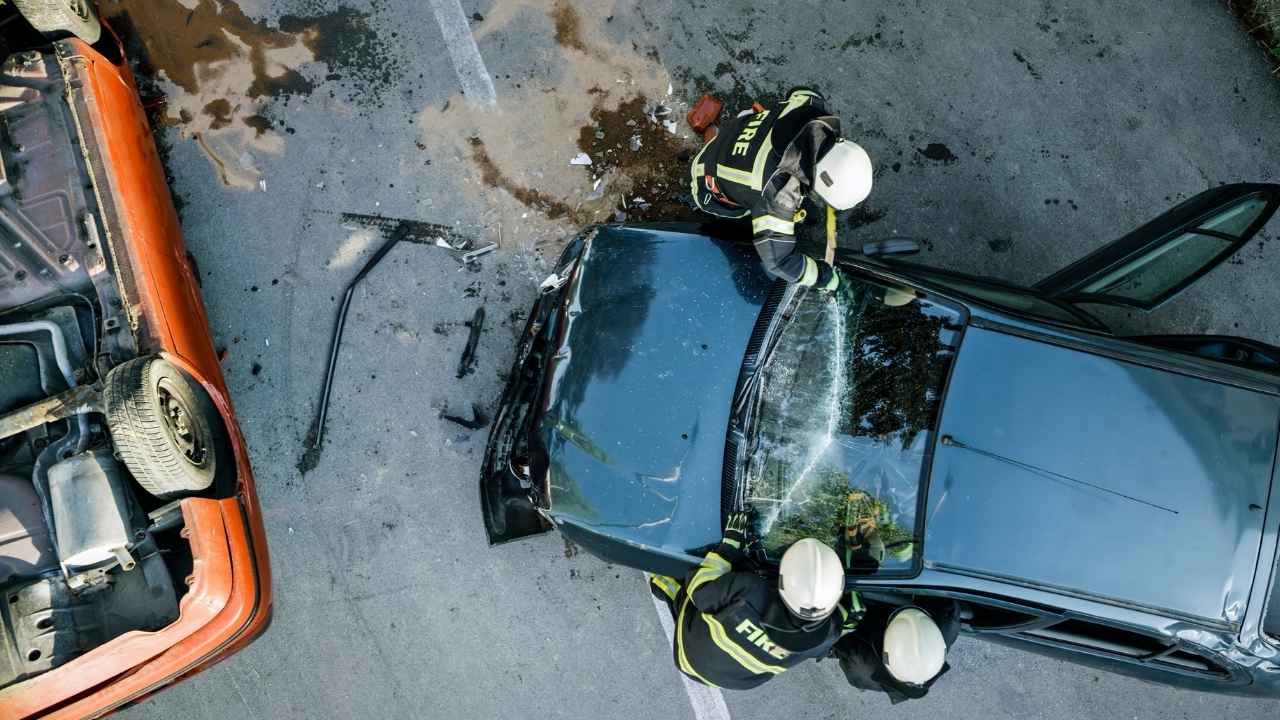In 2015, the National Highway Traffic Safety Administration reported some alarming statistics about the number of elderly drivers involved in fatal crashes. In 2013, there were 5,671 people aged 65 and older (or “the elderly”) killed in car crashes. This number comprised 17 percent of all traffic fatalities. Even more alarmingly, California – at 481 – had the highest number of elderly fatalities that occurred due to car crashes. As the 77 million people born between 1946 and 1964 age, the number of car crashes involving elderly drivers is only bound to increase.
Car crashes involving the elderly are most often caused by a variety of age-related issues including decreased cognitive functioning, hearing and vision loss, and poor muscle response. Another common factor that caused car crashes in California were seniors who drove while using prescribed medicines that can impair judgment and slow reaction times. This article will examine the current laws in California that address elderly drivers in addition to posing advice that will further make sure elderly drivers operate vehicles safely. Last month, the Los Angeles Times weighed in on the issue of the potential dangers of elderly drivers by noting that despite the serious risks posed, it is discriminatory to deny driver’s licenses to adults based on age.
California Laws Addressing Elderly Drivers
There are various ways that California tries to ensure that elderly drivers remain fit to drive, including the following laws:
- Confidential Reporting. The Department of Motor Vehicles has established an office and phone number to anonymously report unsafe drivers.
- Doctor Reports. Doctors who diagnose elderly patients with certain cognitive disorders must report the condition to the Department of Motor Vehicles.
- Driving Tests. If a physician or relative requests, the Department of Motor Vehicles can also mandate that the elderly take a driving test. Driving tests include both general driving tests where elderly motorists must proceed along a route and tests to assess the elderly’s skill in a specific area.
- In-Person Hearings. The Department of Motor Vehicles also conducts hearings where the elderly driver must use evidence to support the argument that the driver is a safe motorist. An elderly driver can prove that the Department of Motor Vehicles argument is flawed by demonstrating that proper medicine has corrected the individual’s health or that an arresting officer had a personal bias against the driver.
- License Restrictions. If a driver has a hard time with the driving test, the Department of Motor Vehicles can force motorists to meet certain requirements to drive. Some typical restrictions include banning night driving and limiting drivers to certain areas.
- Physical Requirement. Drivers must complete the tests required to renew driver’s licenses by physically reporting to the local Department of Motor Vehicle’s office. The Department of Motor Vehicles uses this situation as an opportunity to assess the physical and mental fitness of elderly drivers. Department of Motor Vehicle employees who feel that an elderly driver is not physically or mentally fit to drive can then report the elderly individual to the appropriate sources.
- Suspension. The Department of Motor Vehicles suspends the driver’s licenses of motorists who are considered “negligent operators.” A negligent operator is a motorist who has acquired a requisite number of “points” on their driving record. Points result when drivers are cited for moving violations.
- Vision Tests. Limited vision is a common issue faced by the elderly. Drivers are required to pass tests demonstrating that the driver has 20/40 vision or better. The vision test used by the Department of Motor Vehicles features several potential stages including a wall chart test, a machine that measures how the elderly notice small details, and a visit to an eye doctor.
- Written Tests. Drivers who are age 70 and over must renew driver’s licenses by taking written tests at the local Department of Motor Vehicles. The written test is comprised of 18 multiple choice questions.
These stringent requirements sometimes result in the revocation of licenses from elderly drivers who pose no actual harm with their driving skills. Some studies actually suggest that elderly drivers are safer than younger drivers. For example, reports show that elderly drivers are less likely to drive while distracted by texting than younger drivers. Elderly drivers are also less likely to engage in other dangerous distractions than new motorists, including making phone calls while driving, reaching away from the steering wheel to grab something, and cosmetic application or eating while driving. Interestingly, the National Highway Traffic Safety Administration has reported that in car collisions that result in fatalities, elderly drivers are 1.7 times more likely to be the vehicle that is struck.
It’s free to speak with us and learn the value of your case today.
Call Us Now
Tips For Avoiding Accidents
There are some steps that elderly drivers can take to make sure that driving levels remain as good as ever. These steps include:
- Avoid Risky Situations. Elderly drivers can greatly reduce the risk of car crashes by avoiding driving during peak risks including night and the rain.
- Take Driving Classes. By taking driving classes and continuing to encounter certain obstacles like four-way stops, drivers can maintain skill levels.
- Eyewear. Elderly drivers should make sure that they wear adequate eyewear.
- New Cars. When purchasing new vehicles, elderly drivers should make sure to choose vehicles that are comfortable to drive.
- Stretch. Some elderly drivers are made nervous by the way traffic can sprout up out of nowhere. In these situations, planning routes ahead of time can act as a preventive tool in addition to stretching to reduce tension.
- Walk or Use Public Transport. Although it might not be feasible in every situation, elderly individuals might choose to walk rather than risk the potential negative consequences of driving.
These recommendations, however, are not just applicable to elderly drivers. Anyone who feels their driving skills have been impaired in any way should follow any of these applicable steps. For example, a young person who is afflicted with a serious illness might choose to similarly follow these recommendations.
No matter your age, if you or your loved ones have been injured in an auto accident that has involved a senior citizen, call our experienced California car accident attorneys at The Sargent Firm Injury Lawyers as soon as possible for a free consultation to discuss your case.














